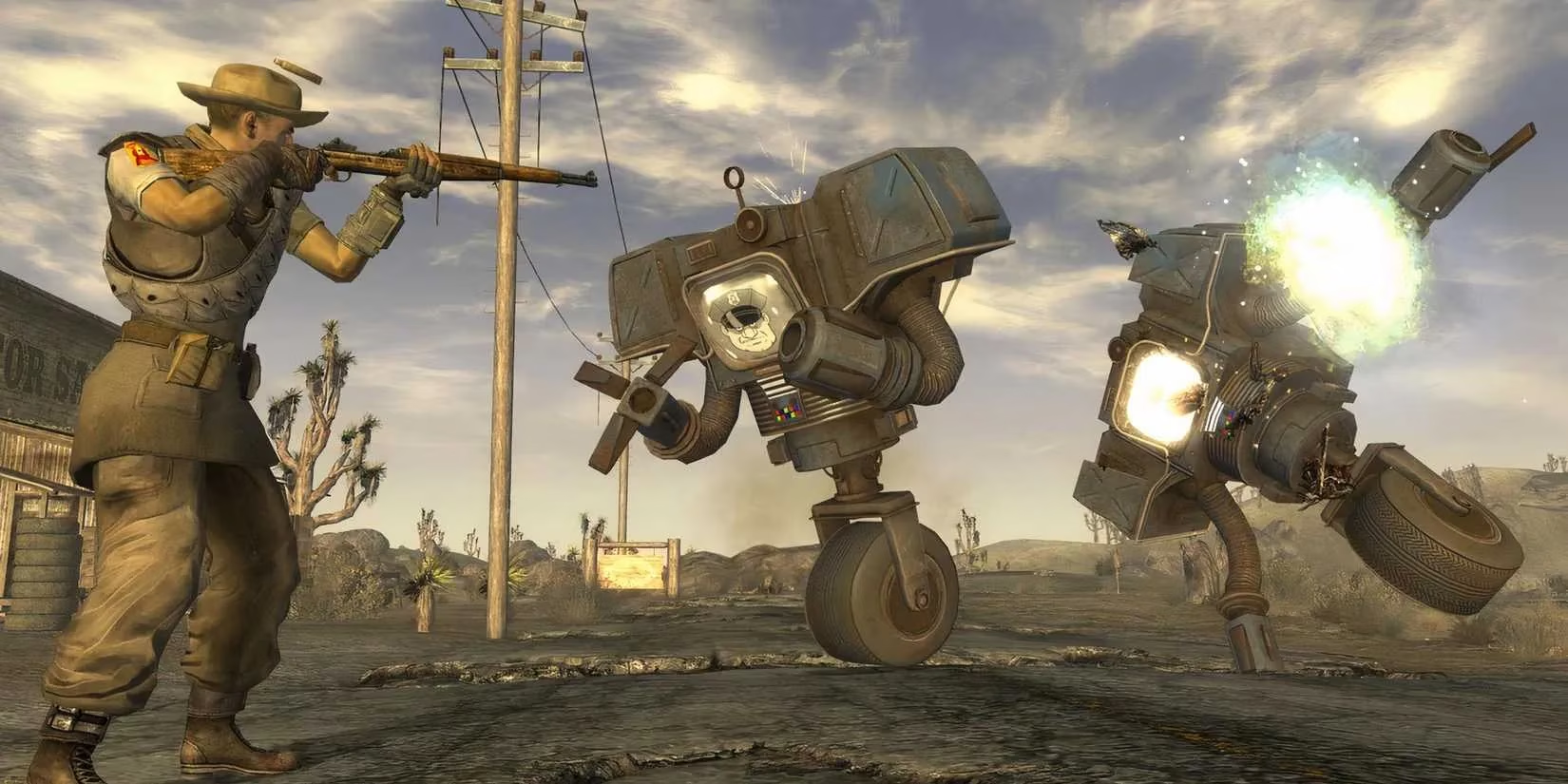Journey Through Immersive Open Worlds with Rich Lore
Explore immersive open-world games with rich lore, compelling storytelling, and dynamic choices that make each journey uniquely captivating and deeply personal.
The allure of open-world games lies not just in their sprawling landscapes, but in the intricate tapestries of lore that transform mere exploration into a deeply personal quest. Players find themselves drawn into worlds where every corner whispers untold stories, absorbing mythology through conversations with NPCs, scattered journals, and hidden collectibles. This isn't just about completing objectives; it's about uncovering histories that linger long after the credits roll, making the journey feel uniquely their own. Why do some worlds feel so alive, while others fade? Perhaps it's the way these tales intertwine with our choices, leaving us to ponder what secrets remain hidden.
Starting at number 10, Fallout: New Vegas immerses players in a desolate wasteland inspired by real-world Las Vegas, with landmarks like Red Rock Canyon and Hoover Dam dotting the barren map. Here, the lore stretches back nearly 30 years, woven through terminal entries and holotapes. Players can shape their karma through chaotic choices, multiple playthroughs beckoning with companions and moral dilemmas. But isn't it frustrating when technical glitches and loading zones break the immersion? That's why it lands here, a flawed gem. 
At number 9, Assassin's Creed Odyssey blends real-time history with Greek mythology, transporting players to Ancient Greece for over 100 hours of adventure. From the valley of Olympia to the depths of the Greek Underworld, the visual splendor is undeniable. Freedom reigns with optional romances and lighthearted moments, yet the absence of a codex leaves lore hunters wanting more. How can a world so vast feel incomplete? Odyssey's strength lies in its sheer scope, but the focus on immersion over documentation creates a bittersweet balance.
Number 8 brings us to Horizon: Forbidden West, set in a post-apocalyptic Forbidden West where Aloy unravels Earth's secrets through datapoints and glyphs. Its stunning exploration features diverse biomes and rewarding loot, but the narrative shifts toward character growth, sometimes overshadowing the world-saving urgency. Players might wonder: does prioritizing Aloy's journey dilute the lore's impact? Forbidden West excels visually, yet the story's pivot leaves room for reflection.
Ranking at 7, The Witcher 3: Wild Hunt plunges players into The Continent, where century-old conflicts between humans and Elder Races unfold through bestiary entries and folktales. As Geralt of Rivia, players hunt monsters and shape endings with critical choices, drawn back by accessible combat and endless content. But why does the exploration feel stretched? Its lore-rich world invites multiple playthroughs, yet the pacing occasionally falters.
At number 6, Hogwarts Legacy whisks players to the Wizarding World 100 years before Harry Potter, capturing Hogwarts' charm through nostalgic details. Lore hides in character histories and collectibles, masterfully evoking the universe without the Chosen One. Despite a smaller map, the magic feels authentic. Could any Potterhead resist the pull? This game proves that lore thrives in the details, even when the scale is intimate.
Number 5 is Red Dead Redemption 2, set in 1899's fading Wild West, where Arthur Morgan's outlaw life unfolds through environmental details and random encounters. Players absorb lore via journals and photographs, spending hours on Easter Eggs and NPC dialogues. What makes it feel lifelike? Realistic characters and dialogue elevate it, but the sheer volume can overwhelm. After 50 hours, one might still uncover secrets, pondering the Wild West's legacy.
At 4, Ghost of Tsushima transports players to 1294 feudal Japan, inspired by Akira Kurosawa, as Jin Sakai abandons honor to become the Ghost. Lore emerges through Mythic Tales and side quests, with visuals like cherry blossoms and coastal shores creating a soulful experience. Is simplicity the key to immersion? Its uncomplicated narrative shines, yet the historical focus leaves some yearning for deeper myth.
Number 3 is The Legend of Zelda: Breath of the Wild, where Hyrule's breathtaking design invites contemplation. As Link retrieves memories and battles Calamity Ganon, lore surfaces through hidden locations and NPC interactions, favoring environmental storytelling over handholding. Compared to Tears of the Kingdom, its cohesive lore feels purer. Why does non-linear progression resonate so deeply? Breath of the Wild's mystery lingers, urging players to piece together the past.
At 2, The Elder Scrolls V: Skyrim continues to fascinate with its expansive lore, where players become the Dragonborn, destined to slay Alduin. Its subjective storytelling broadens discovery, with 337 in-game books offering deep dives into Tamriel. The lack of urgency makes gameplay personalized, but isn't the linear story a constraint? Skyrim's charm endures, yet the balance between freedom and narrative leaves space for interpretation.
Finally, at number 1, Elden Ring reigns with The Lands Between, a world crafted by George R.R. Martin, filled with mysterious lore in every corner. From Raya Lucaria Academy to Caelid's rot-infested lands, exploration is punishing yet rewarding. NPC dialogues and item descriptions unveil overlying stories, luring players into 700-hour journeys. How does it weave such enchantment? Elden Ring's ambition shines through references and symbolism, but the challenge tests resolve.
These worlds offer more than just gameplay; they invite us to lose ourselves in legends that echo beyond the screen. What hidden tales will you uncover next? 🌍📖